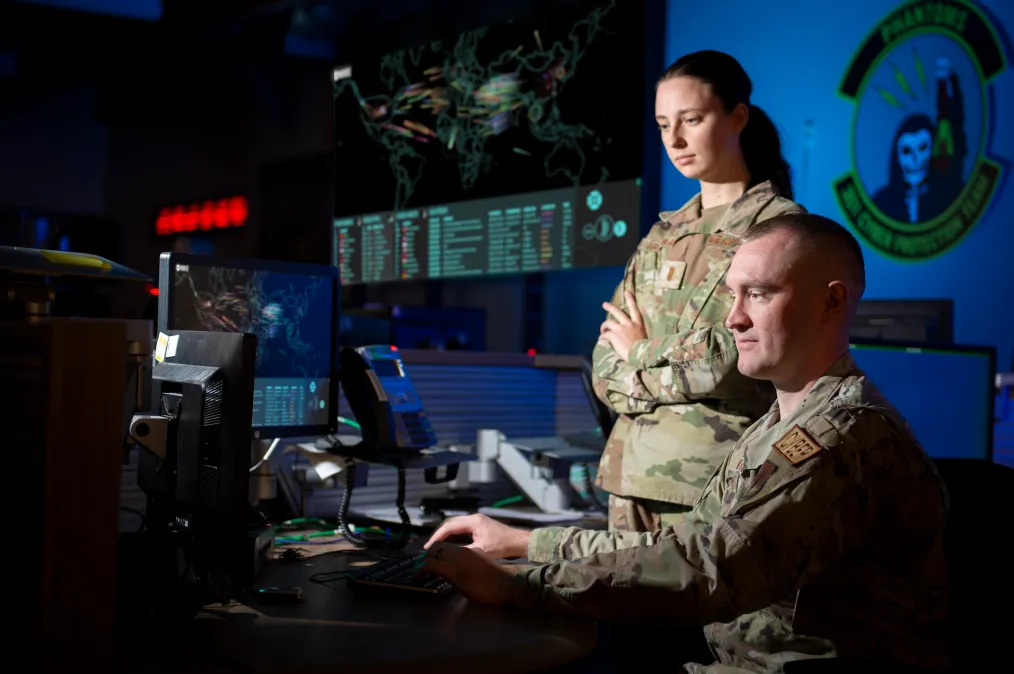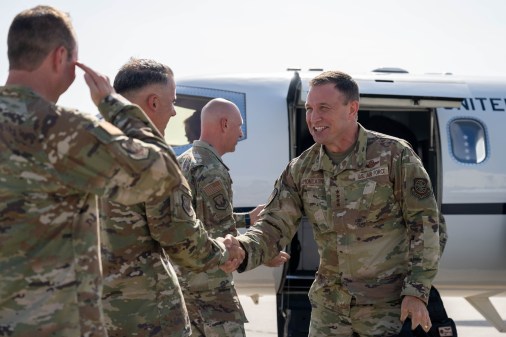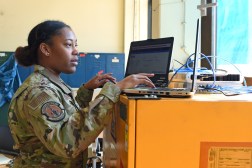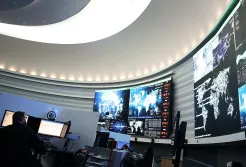Wilsbach, Trump’s pick for Air Force chief, notes retention and training of cyber experts ‘suffering’

Gen. Kenneth Wilsbach, President Donald Trump’s nominee for Air Force chief of staff, told senators that the Air Force isn’t having trouble recruiting cyber experts — the main problem is with retention and training.
Wilsbach — who recently served as commander of Air Combat Command, which oversees 16th Air Force (Air Forces Cyber) — noted the challenges in his responses to advance policy questions ahead of his confirmation hearing Thursday with members of the Senate Armed Services Committee.
The military services have previously struggled with readiness issues regarding their respective cyber mission force team contributions to U.S. Cyber Command.
“The Air Force currently doesn’t have a recruiting shortfall for the above-mentioned career fields thanks to initiatives like direct accession. In fact, the Air Force grew accessions in the enlisted cyber operations career field by 79% since FY 22. However, we do have challenges in the training and retaining areas. Retention of both military (17S, 1B4, 1N4X1A, and 1D7), and civilian (2210) highly skilled cybersecurity personnel is suffering due to private sector competition offering higher pay and more flexible career options. For civilians, this is compounded by bureaucratic hiring processes, limited access to cutting-edge technology and training, and a lack of transparent career advancement. Inflexible assignments (particularly impacting military personnel), developmental gaps in training and placement, and operational burnout further exacerbate the problem,” Wilsbach wrote.
“To combat this, the Air Force must leverage the Airmen’s sense of purpose by providing clear career pathways, professional development opportunities, and nonmonetary incentives that foster job satisfaction for both military and civilian employees. Efforts are also underway to refine training pipelines, aligning them more closely with operational needs,” he added.
Officials are implementing a strategy focused on financial incentives, career development, and training modernization to address cybersecurity personnel shortfalls, he noted.
According to Wilsbach, enticements include incentive pay of up to $1,500 per month for critical roles, officer retention bonuses of $25,000 per year, and “Targeted Local Market Supplementals” for civilian positions under Cyber Excepted Service.
To boost readiness, the Air Force is implementing consecutive operational tours to deepen expertise and improve team performance, he told lawmakers
Last year, the service also reintroduced warrant officer positions, including for cyber and IT career fields.
“Cyber Warrant Officers (17W/17Y) are critical to the Air Force’s cyber force modernization, providing deep technical expertise, continuity, and mentorship in warfighter communications and cyber effects operations. They serve as subject matter experts, advise commanders, integrate cyber capabilities into warfighting functions, and enhance combat effectiveness,” Wilsbach wrote in response to senators’ questions.
Personnel are helping to build the Air Force’s zero-trust architecture and also “leading offensive cyber operations” in support of U.S. Southern Command — the combatant command that oversees American military ops in most of Latin America, the Caribbean and surrounding waters — he noted.
“To grow this program, the focus will be on cultural integration within operational units, building professional development tracks, continuous improvement based on feedback and data, and joint force alignment. This ensures the Warrant Officer program is institutionalized as a long-term pillar for retaining top cyber talent and maintaining a technically superior cyber force,” Wilsbach wrote.
Meanwhile, the Cyber Resiliency Office for Control Systems (CROCS) and Cyber Resiliency Office for Weapon Systems (CROWS) will continue to be critical for defending networks, operational technologies, weapon systems and critical infrastructure and ensuring they remain functional while under digital attack, he told lawmakers.
The service also needs to make sure that secure-by-design principles are implemented early in air system development, and work with industry to acquire advanced cybersecurity solutions, he noted.
“The Air Force must systematically assess the criticality and allocate resources to address the most likely and most damaging cyber risks first. Integrating cybersecurity early in the development lifecycle of new air systems and building security features in from the ground up are more cost-effective than bolting them on as an afterthought,” Wilsbach wrote, adding that exercises will help evaluate the potential impact of different cyberattacks on air systems to identify critical vulnerabilities and help prioritize investments in defensive capabilities.
If confirmed by the Senate, Wilsbach will succeed Air Force Chief of Staff Gen. David Allvin, who was reportedly asked to step down by Pentagon leadership. Allvin is only about two years into his tenure as Air Force chief. Members of the Joint Chiefs of Staff typically serve four-year terms.






